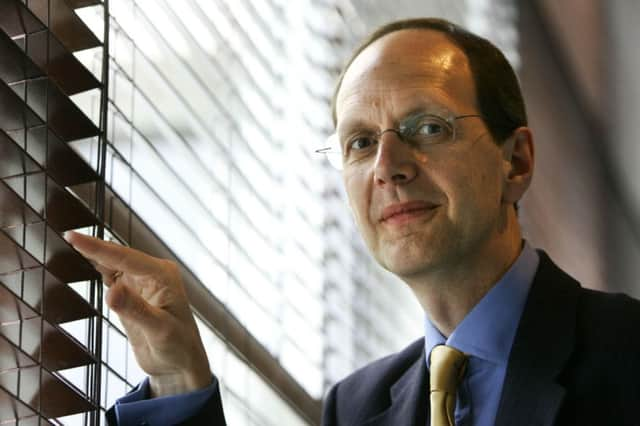Scottish independence: ‘Third way’ is a minefield


This is a third category of campaign group which can operate outside the lead organisations – Yes Scotland and Better Together – and the political parties.
The registration as a non-party participant allows the CBI to spend up to £150,000 on campaigning during the regulated campaign period.
Advertisement
Hide AdAdvertisement
Hide AdElectoral law puts limits on what can be spent on either side of the independence campaign, including the various organisations’ outlay on such expenditure as advertising, mailshots, rallies, temporary paid staff, media relations and transport.
It is understood that no CBI money is earmarked to influence the campaign.
Election law requires registration and detailed returns on donations by any individual or organisation spending more than £10,000.
It is believed that the registration of the CBI, dated Thursday 16 April, ensures the organisation stays within electoral law if it stages events such as dinners with pro-union speakers.
That could include the annual CBI Scotland dinner, which usually takes place at the start of September, just ahead of the referendum.
There have already been fears the permitted participant role could be open to abuse by both sides.
MSPs voiced concerns last year that “multiple, dummy organisations” could be set up under this guise by individuals backing ether side to pump in more cash if limits have been reached.
Both lead campaigns, along with the political parties who back them, have a limit of about £3 million in the restricted period.
Advertisement
Hide AdAdvertisement
Hide AdThe Yes side is already well over this level of funding after the £3m it has reportedly received from the lottery winners Colin and Chris Weir, as well as the £1m bequest of late Makar Edwin Morgan.
However, much of this money may have been spent before the restricted period kicks in.
The No campaign has also secured major donations, including £500,000 from oil magnate Ian Taylor.
Existing rules mean that if any “co-ordination” takes place between the lead campaigns and other bodies, then the latter would be judged to be part of the main campaigns and not a separate entity, by electoral chiefs.
Better Together campaign chief Blair McDougall told Holyrood’s referendum committee last year that he did not “anticipate” that there would be separate pro-union campaigns which would be set up as permitted participants outside the official Better Together umbrella.
He added: “In terms of concerns we have, the main one is how do you balance ensuring that dummy organisations aren’t set-up.”
SEE ALSO